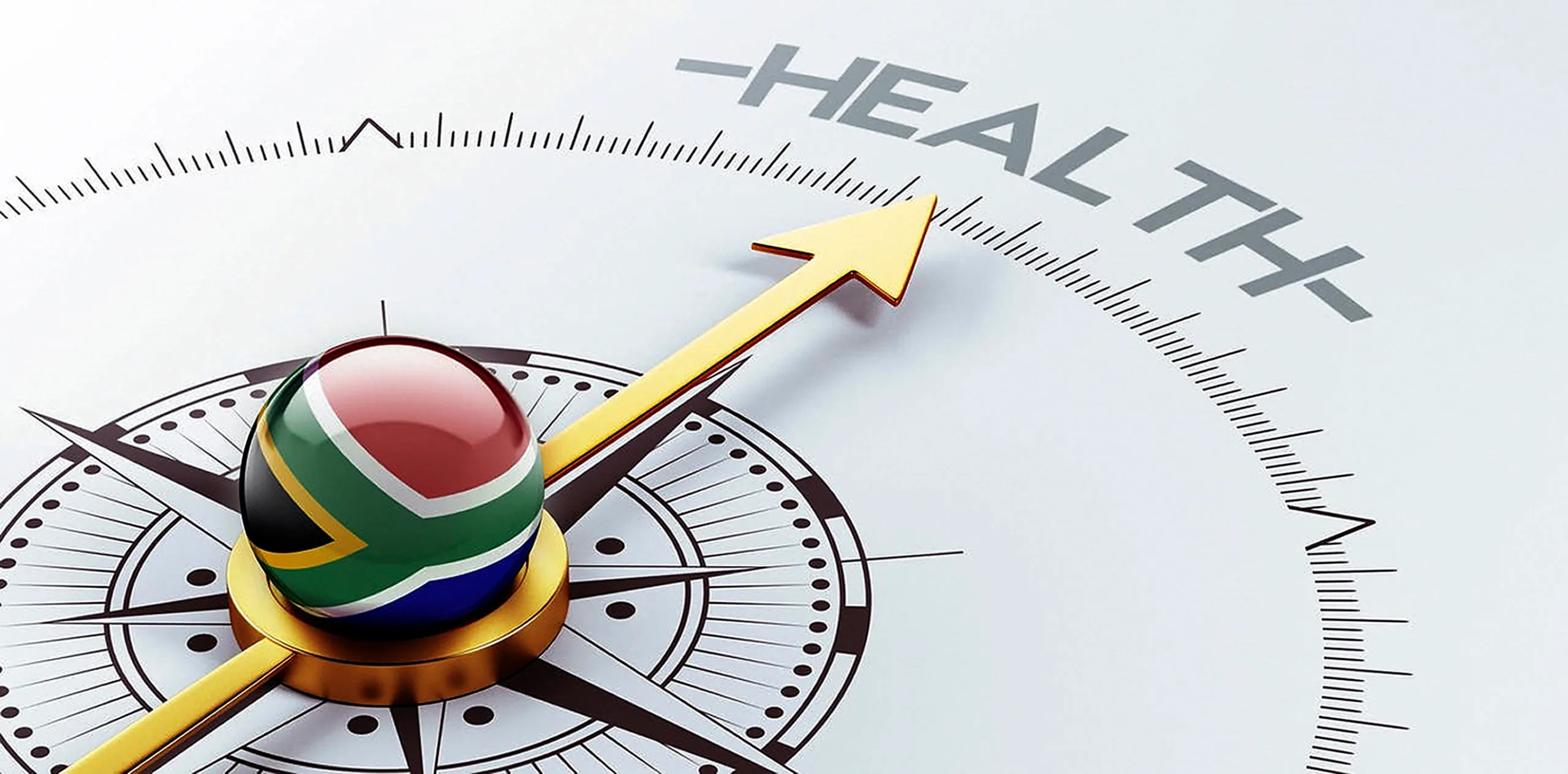The 1st of August 2022 was a significant day. It was the day the Department of Health stopped providing the daily Covid-19 updates that started in 2020. As of 1 August, South Africa has:
- Recorded four million Covid-positive cases.
- Administered 37 million vaccines, with 32.4% of our population fully vaccinated. This is significantly lower than the global average.
- Recorded 326,280 “excess deaths”(according to the Medical Research Council) since 3 May 2020.
- This includes close to 1,500 health workers.
Despite the loss of life, with some provinces having among the highest case fatality rates in the world (the Eastern Cape has a death rate of 855 per 100,000 versus the Western Cape’s 435), it could have been much worse. In this context, there is still a need for the government to formally acknowledge our health workers, their sacrifice and how their commitment and skill prevented many more deaths. The death of health workers in the line of duty was not just a loss of precious hands and expertise in a country with a human resource shortage, but also a loss of accumulated expertise and memory. It has made the implementation of the Human Resource for Health 2030 plan all the more urgent. It can’t afford to gather any more dust.
How much damage did Covid do to health and the health system?
In a recent letter to The Guardian, Oxford University professor of history Erica Charters points out:
“Epidemics are not a series of discrete biological events that simply pass into history with the disappearance of the disease. They are also moral crises, testing the limits of social cohesion and trust.”
She says “political and social contexts fundamentally shape the pandemic’s medical end”.
She’s right. New Covid cases in South Africa are declining consistently, but the “moral crisis” is only just beginning. That is why it’s sad that there seems to be little learning from the Covid-19 pandemic. Instead, despite all the “build back better” bluster, societies are continuing as before. While the World Health Organization (WHO) may now be drafting a Pandemic Preparedness Treaty, for most states it’s back to business as usual.
In particular, we are not appreciating, or even trying to quantify, how much damage Covid-19 has done and is still doing to the health system.
This would include:
The loss of and harm to health workers: In October 2021, the WHO estimated that 115,000 healthcare workers had died between January 2020 and May 2021. In South Africa, Dr Maggie Mojapelo, who has maintained the Healthcare Heroes memorial, gave me a rough estimate of 1,446 health worker deaths.
But in addition to loss of life, there is the damage to morale and trauma (post-traumatic stress, basically) experienced by health workers who have witnessed death and human suffering on a large scale, as well as having to contend with their own fears and anxieties.
The diversion of resources: For two years resources from other parts of the health system were diverted to Covid-19.
As a result there is a need to catch up with diseases and social determinants that were neglected: notably, mental health; HIV and TB prevention and treatment; non-communicable diseases; and malnutrition in children.
Even before Covid, South Africa had a unique quadruple burden of disease. To this we can now add long Covid, which, new data show, can no longer be seen primarily as a respiratory disease.
According to Professor Salim Abdool Karim:
“SARS-Cov-2 causes disease from head to toe. It increases the risks of other diseases like diabetes and heart disease every time [reinfection] happens, as well as increases the risk for fatigue, gastrointestinal disease, kidney problems, mental health, muscle and skeletal diseases and pulmonary disease. This increased risk of heart disease occurs regardless of the severity of Covid symptoms.”
Abdool Karim warns: “This is going to change the practice of medicine. Before, we had not thought of Covid as a chronic illness … Initially, we thought of it as an acute infection. That is how we understood it in 2021 and 2022. That is no more.”
/file/dailymaverick/wp-content/uploads/2022/08/MC-mark-analysis-health_6.jpg)
But in addition to direct impacts on the health system, lockdowns had indirect health costs. The prohibitions on alcohol allowed researchers to quantify the harm “ordinary” alcohol consumption costs, but we have bounced back to boozing with a vengeance.
The collapse of essential non-health health systems, such as early childhood development services, which have not recovered, came with other high costs. Shockingly, to this day a R480-million fund meant to support early childhood development staff has only been half-disbursed. More and more evidence is emerging of malnutrition in children, a claim the government denounced and denied when it was made by Medical Research Council president Professor Glenda Gray in 2020.
Read more in Daily Maverick: “Malnutrition, health services and democracy: The responsibility to speak out”
Put bluntly, our burden of disease is about to get much worse. So, the question we should be asking is: Is our health system up to managing it?
Visit Daily Maverick's home page for more news, analysis and investigations
High performance. Poor results. Why?
Let’s start with the positives. South Africa should have all the ingredients it needs to make its public health system work:
- It has an extensive physical health infrastructure which is the envy of most developing countries;
- Although insufficient to meet needs and severely under strain, it has a skilled human resource base, including – because of our unique burden of disease – world-class infectious disease specialists and (sadly) trauma surgeons;
- It has nine medical schools in five provinces and a small army of teachers and respected academic researchers into health systems;
- According to health economist Professor Alex van den Heever, the combined expenditure of our public and private sectors amounts to a whopping R488-billion per annum, “not including Out Of Pocket or other forms of health insurance or expenditure by social insurance funds”. This is 8.5% of GDP, much higher than most other similarly situated countries.
And yet, although most health workers perform admirably, the system performs abysmally and, as a result, we get extremely poor population health outcomes.
Why?
In my view (a view shared by many), the key things that are missing in action, and which prevent us from maximising this potential, are visionary political leadership; skilled and accountable management of health facilities; and quality and continuous communication up, down and out of the health system to the people who use it.
There is also a need for better collaboration and communication between different parts of the health workforce, rather than in discipline silos. Sadly, in my experience, doctors’ groups rarely talk to nurses, and nobody talks to service staff. This means that the workforce itself is unnecessarily divided, often along lines of race and class, and these divisions are played upon by corrupt managers and corrupt union leaders. The “I Am” movement sparked by the victimisation of Dr Tim De Maayer, for example, can’t just be a doctor’s movement.
/file/dailymaverick/wp-content/uploads/2022/08/MC-mark-analysis-health_4.jpg)
What is to be done?
In conclusion, it’s time for health rights activists to change tack.
Health rights activists have been campaigning for many years to fix the health system, but with little overall impact on the system. For example, when SECTION27 and others set up the Eastern Cape Health Crisis Action Coalition way back in 2013, I remember a cynical journalist predicting we would never succeed. That made me upset.
Now I have to admit that she was right. With the exception of the response to HIV – where activism has driven the agenda for two decades – civil society advocacy has not made the health system better and we should admit it.
It’s time to recognise that, with a few exceptions, there’s no appetite for risk-taking and independent decision-making in the national and provincial health departments. Those bureaucratic hearts are cold and beat to the tune of party loyalty and/or personal profit, not to the constitutional rights to healthcare services.
It’s time to recognise that the health system is not going to be fixed by pleas or demands for action from above, or even by litigation, and then consider the implications of this.
In the past, we have had vitally important movements of health users that had a huge impact, of which the Treatment Action Campaign is the prime example. But many health workers’ organisations and unions were either cowed or captured.
Recent developments, particularly the “I Am” movement, are important because they reflect a growing recognition, mainly by doctors at this stage, that it’s time to start rebuilding and taking over the health system from below.
/file/dailymaverick/wp-content/uploads/2022/08/MC-mark-analysis-health_5.jpg)
Dr Aslam Dasoo, convenor of the Progressive Health Forum, calls the “I Am” movement “a spontaneous act of defiant solidarity by thousands of health professionals, daring the administration to act against them too for echoing his sentiments”. Dasoo claims that by doing so, “existing power relations that value form over substance have been overturned”. He says that “health workers wresting control of public health services from an inept and corrupted administration is an act of Stoic justice”.
Instead of focusing on the bad, activists now need to look at what’s working in the health system as a result of health workers’ efforts (rarely the system), and discuss how we can scale it up.
We need to raise the morale of health workers not with false promises, but with campaigns that have a tangible impact on the system and build solidarity with communities who see the benefit in partnerships for quality care.
The questions we should debate include:
- What makes a health facility work well, even in a broken system?
- How do we collaborate to actually fix facilities?
- Where is the low-hanging fruit for quick improvements to facilities and systems?
- Which health issues can a campaign make a positive impact on in the same way that we did with HIV?
- How, actually, do we “wrest control of public health services”?
Healthcare workers are putting their hands up for this new struggle. More importantly, lives are at stake. There really is no more time to waste. DM/MC
This reflection is based on presentations I made recently to conferences of the Hospital Association of South Africa and the National Family Practitioners’ Congress hosted by the South African Academy of Family Physicians. The same arguments will be made at the TAC’s national congress at the end of August.





 (Photo: bizcommunity.com / Wikipedia)
(Photo: bizcommunity.com / Wikipedia)